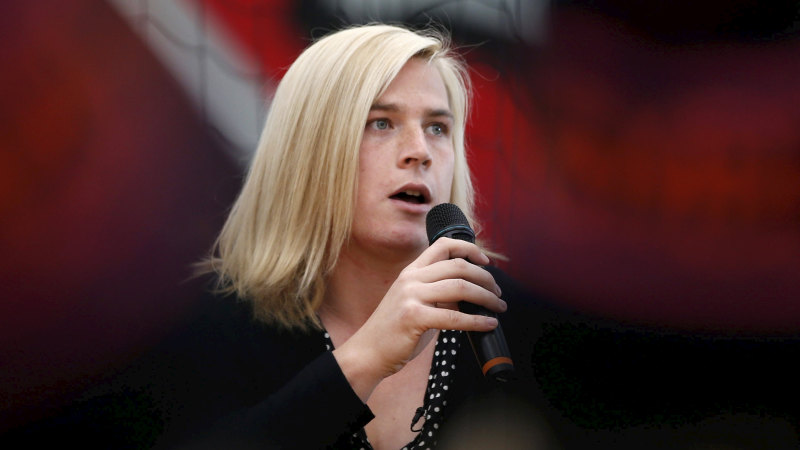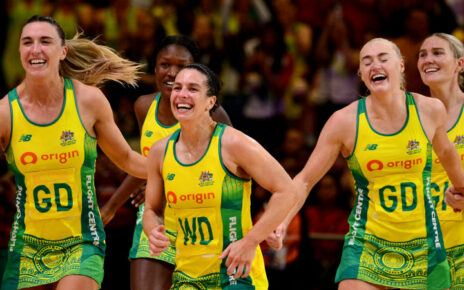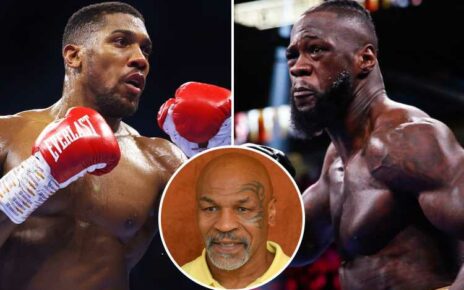Save articles for later
Add articles to your saved list and come back to them any time.
Transgender athlete Hannah Mouncey has declared Australia’s new guidelines for elite trans athletes as the best and most detailed that she’s seen.
A new national framework developed by the Australian Institute of Sport to guide Australia’s sporting codes on what to do when transgender athletes seek to join elite competitions was released publicly on Friday.
The framework comes as Olympic swimmers Madeline Groves and Taylor McKeown supported trans inclusion in elite sports.
In the guidelines, the AIS states that an outright ban of transgender athletes from a sport – similar to policies introduced by World Aquatics (formerly FINA) or World Athletics – could be in breach of Australia’s anti-discrimination laws. Instead, the framework emphasises the need for case-by-case assessments of trans athletes.
Mouncey, an elite handballer whose bid to join the AFL was rejected, said the guidelines were the best and most thoughtful that she’s seen.
“They’ve made it pretty f—ing clear that if you want to ban someone, you’ve got to make it pretty clear as to why,” Mouncey said.
Transgender elite athlete Hannah Mouncey welcomes the AIS new guidelines for elite athletes
At a time when the inclusion of transgender athletes is at the centre of a polarising debate, further complicated by the politicisation of trans rights, these new guidelines are intended to create a consistent and fair approach that balance the interests of inclusion and the integrity of sport in Australia.
They are not compulsory, however, and emphasise the assessment and eligibility of transgender athletes in professional settings is dependent on the sport. This is because what is considered advantageous differs from sport to sport.
“I don’t think they could’ve done it any better,” Mouncey said on Friday. “They’re awesome.”
The 33-year-old said details like how often athletes are required to have their testosterone levels tested (the AIS recommends four times a year) had never been clarified before. She had been testing her testosterone levels each month.
“They’ve actually done it without listening to the hysteria that’s out there,” Mouncey said, referencing the polarising and often misinformed debate that has been at the centre of much media and public attention.
The guidelines recommend a testosterone threshold of 2.5 nanomoles per litre for a minimum of two years, a stricter threshold than the majority of Australian sports’ current policies. However, the guidelines include wiggle room for sports that rely less on explosive and physical power, as experts emphasise the nuance required when addressing trans eligibility in elite sport.
Mouncey has always welcomed testosterone threshold in elite settings. “It’s black and white, and it removes subjectivity from it.”
In eight years of testing, Mouncey said her testosterone levels had not reached higher than 0.8 nanomoles per litre.
Olympic swimmers McKeown and Groves have also come out in public support of transgender inclusion at the elite level.
“I’m all for allowing trans athletes to compete in sport and giving them equal opportunity to pursue their dreams, have fun and compete to the best of their ability,” McKeown said. “After all, isn’t that what sports are all about?”
Groves added: “Australia prides itself on being a country that gives people a fair go, we should never deny people opportunities because of their gender … Trans people deserve to play sport like anyone else.”
In a joint statement, LGBTQ+ sporting bodies including Pride Cup and Proud2Play, as well as Equality Australia said they welcomed the guidelines.
“After extensive consultation and research, the AIS has found there is no case for a blanket ban on trans athletes in any sport, even at the elite level,” said Equality Australia chief Anna Brown said.
“The guidelines also encourage sporting bodies to start from a position of inclusion, and state that any restrictions must be justified on a case-by-case basis and be no more than necessary to ensure meaningful competition for everyone.”
News, results and expert analysis from the weekend of sport sent every Monday. Sign up for our Sport newsletter.
Most Viewed in Sport
From our partners
Source: Read Full Article




